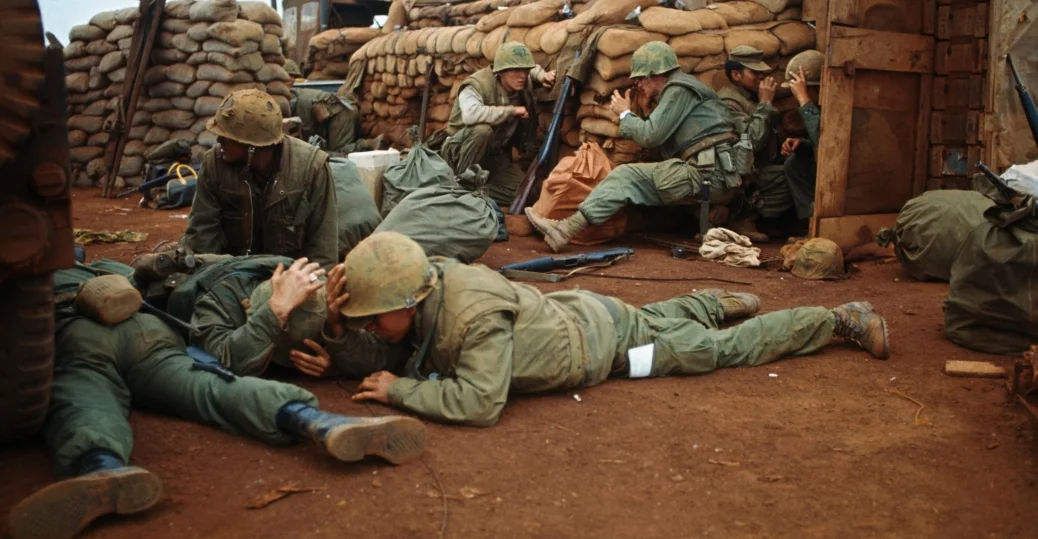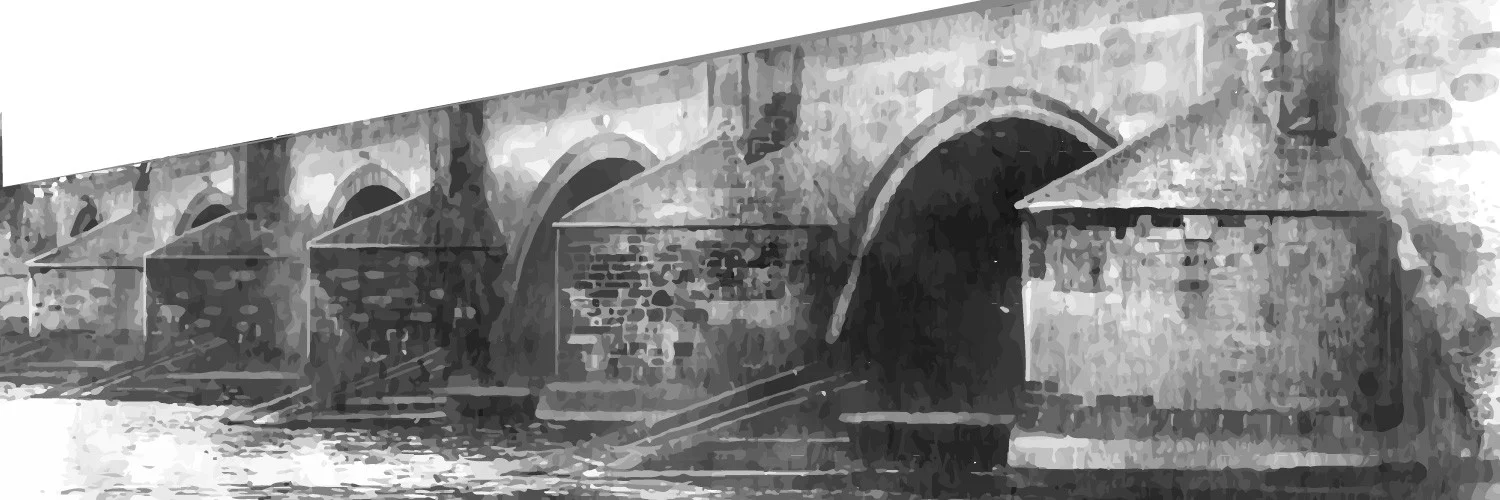Plato’s Republic is endlessly rich. Broadly, it begins when Socrates and his friend Glaucon are compelled to stay at Cephalus’ house in the Piraeus. Remaining just outside Athens, the many—including Polemarchus, Thrasymachus, and Adeimantus, among others—debate questions of justice. When no satisfactory answers emerge, Socrates originates the great thought experiment—to construct a city in speech. Over the course of the dialogue, the imagined city undergoes numerous revisions as the founders identify and fulfill the imagined city’s needs. War, it turns out, is not a need, but a consequence. It is only after Glaucon’s relishes are admitted that Socrates finds cause for war. To what extent does war make the city possible?
Clausewitzian Deep Tracks: #Reviewing “Guide to Tactics, or the Theory of the Combat”
This analysis is anything but exhaustive. What separates “Guide to Tactics, or the Theory of the Combat” is how it situates itself in relation to On War. In many ways it serves as its inverse. Given that On War functions to describe the relationship of war to politics, “Guide to Tactics, or the Theory of the Combat” describes the relationship of tactics to war.
Fragments Through a Straw, Darkly: #Reviewing Drone
My initial reaction—if we can call two years of brooding initial —is exactly why we need more poetry about the experience of modern war. We need it for catharsis, communication, and reckoning. We need more poetry that forces us to wrestle in the cobwebs and the debris of the darkest corners of the attic. We need to reflect in the mirrors, be they clear, clouded, or cracked, that we find locked away in the trunk. Garcia gave me a key. Maybe it will work for you as well.
Lethality: An Inquiry
Left undefined, lethality risks the fate of many insufficiently elucidated but well-meaning concepts. It is imperative the concept is properly understood, otherwise the word will saturate PowerPoint slides bereft of insight. Given the theoretical grounding it deserves, lethality provides incisive structure. It forms the backbone and guiding intent underwriting the litany of defense actions, processes, and programs: from doctrine, organization, training, and materials to leadership, education, personnel, and facilities. Understood tactically, organizationally, and strategically, lethality hones a latent ethos. Word choice matters, which is the point. The National Defense Strategy is a well-informed and insightful guiding document, but lethality deserves unpacking.
#Reviewing: The Journey to Safe Passage
Must the rise of power in China and the fear it causes in America lead to war? Kori Schake’s new work, Safe Passage: The Transition From British To American Hegemony, probes this question, albeit obliquely, via an inquest into why the passage of power from Great Britain to the United States during the nineteenth and early twentieth century was pacific and whether such passage is repeatable. What emerges from this eminently readable, incisively argued, and keenly erudite history is how precarious such passage was: a contingently calm transition, only tranquil because universal ideals mollified the augured storm.
A Summons: #Reviewing Draw Your Weapons
Sentilles’s staccato collection presents as a meditation on the pulsing heritage that underscores life and death. In her Preface, she acknowledges, “I began writing these pages after seeing two photographs.” One was an innocuous photograph of a man, Howard Scott, holding a violin, while the other was of an unidentified detainee from Abu Ghraib. With this juxtaposition, Sentilles sets about to unravel their complicated legacies and reveal their common thread: war.
Interviewing B.A. Friedman On Tactics
Who’s Missing? The Limits of Professional Reading Lists
A reading list, quite obviously, is a list of readings; it is a list defined by its content. But a professional reading list is actually more than a list of professional readings. It prescribes its own use: Wrestle with me, it goads. Debate me. Engage. At the very least expect an encounter. The texts listed within serve to further circumscribe the profession and those within it, as professionals. Martha Nussbaum in Not for Profit: Why Democracy Needs the Humanities explains “When people see their ideas as their own responsibility, they are more likely, too, to see their deeds as their own responsibility.” Just as we seek to instill decentralized execution in tactical engagements, introducing critical thinking serves to empower junior leaders to take ownership of their ideas; the list is not a checklist, but a playlist, a library of potential.
Not Safe for War: #Reviewing War Porn
War Porn is an attempt to come to grips with the modern, and perhaps even the postmodern, experience of war—an experience that Achilles would still understand. Yet, what is most striking is the author's incessant meditation on what it means to be “a spectator of calamities taking place in another country.” This tension forms the brutal backbone and gritty strength of the novel, uniting all who watch war.
Modelez-Vous: Deriving Frameworks From History
It is oft quoted in numerous aphorisms and proverbs that we should learn from the past. According to Napoléon Bonaparte’s last maxim, in his Maximes de Guerre de Napoléon, one should “Lisez, relisez les campagnes d’Alexandre, Annibal, César, Gustave, Turenne, Eugène, et de Frédéric; modelez-vous sur eux; voilà le seul moyen de devenir grand capitaine, et de surprendre les secrets de l’art de la guerre” [“Read, reread the campaigns of Alexander the Great, Hannibal, Julius Caesar, Gustavus Adolphus, Vicomte of Turenne, Prince Eugene of Savoy and Frederick the Great; model yourself on them; that there is the only way to become a great commander, and to obtain the secrets of the art of war.”]
Tet à Tête: Vietnamese Exploitation of American Misapprehension
The Tet Offensive was a shock and a surprise for the Americans, where despite the high death toll the Americans inflicted on the Vietnamese, the Americans still lost. The Americans did not understand the restrictions and limitations they placed on themselves: the ideology of anti-Communism and exceptionalist pro-Democracy. But the Vietnamese did.
Tactical and Strategic Interdependence
Only by understanding the proper framework and context within which to place and employ the means towards the ends can tactical victories and strategic successes possibly be achieved. Strategy and tactics are absorbed and coextensive in the mind of the commander, within the plan of war, which decides combat, the crucial key connecting and explaining strategy, tactics, and their relationship.
Targeting Clausewitzian Judgments: Fusing Precision and Accuracy to Strategy and Tactics
Just as no war can take place without an enemy, there can be no war without targets. Considering the enemy, as a whole, a target, while true, borders on tautology. Instead, we subdivide the enemy into many individual parts against which we act. However, selecting these targets requires accurate strategic vision and precise tactical acumen.
The Threatening Space Between Napoleon and Nukes: Clausewitz vs. Schelling
Great theories stand the test of time—shedding light on their subject’s essence despite varying contexts, technological upheavals or mutable human relations. One such work is Carl von Clausewitz’s On War. That said, with the detonation of the atomic bomb and the proliferation of nuclear weapons, many find Clausewitz wanting. How can there be a decisive battle without nuclear annihilation? Nuclear weapons seem to breach our understanding of force, suggesting the need for radically different conceptions of war. Enter Thomas C. Schelling and his work on The Strategy of Conflict
#Reviewing Here, Bullet: Turner’s Trinity of Love, Death, and Poems
Mere description cannot approach the inner essence of the experience of war, but poetry can...Rather than attempting to bridge this insurmountable gap, Turner leads us to the edge, pushing us there without pushing us off. Turner later contends, “I have no words to speak of war.” Instead, he translates bullets, moving from Bismarck’s blood and iron to ink and lead. What follows is a collection of poems infused with “the language of blood,” endowed with experience, taking us to edge, showing us what otherwise cannot be seen, and leaving us there to reflect.
#Monday Musings: Olivia Garard
The Objective Value of Clausewitz
The reality is that we value considering war in a certain way: the Clausewitzian way. Just like other values, people can disagree, but they should recognize that they are disagreeing based on value and not fact...Arguments about the definition of war are always, in some sense, efforts to shape, constrain, or channel violence and power, but this makes it all the more important to consider whether we should think of the nature of war as Clausewitz does. To which I answer, most definitively, yes, because if not Clausewitz, then whom?
Max Weber & Groucho Marx Walk Into A Bar: #Reviewing Victor in the Rubble
Simply, Victor in the Rubble is a delight. It produces that same sense of glee that comes from opening an MRE to find a pop tart perfectly whole rather than smashed into a gazillion crumbles. Alex Finley, a former CIA officer, has crafted a magical satire of the Intelligence Community post-9/11, Iraq, and the 2004 intelligence reforms.
Uniqueness As Flexibility: Refining Strategic Narrative
"Wars are fought twice: once on the ground and once in the mind. As spin-doctors of the past, the winners over the mind write history by establishing a narrative of past events, solidifying their version of events as much as their victory. Today, the priority of victory on the ground recedes, as victory over the mind proves (almost) sufficient to win. But strategy is still the coordination of ends, ways, and means to achieve victory, whereas strategic narrative—a subset of strategy—is the specific process used to achieve victory over the mind..."
Down the Rabbit Hole: Alice and the Experience of Clausewitzian Genius
Alice’s Adventures in Wonderland can help us better understand the experience of Clausewitzian genius. Now, this sounds about as illogical as Lewis Carroll’s famous riddle, uttered by the Mad Hatter: “Why is a raven like a writing desk?” But unlike the riddle, which was initially constructed without an answer, the concept of genius links Clausewitz and Alice without artifice. While Clausewitz’s “field of genius...raises itself above rules,” Wonderland is a fantastical space that enables Alice to raise herself not only above rules, but also sense. To see how this is so, we can appeal to Alice and her encounters in Wonderland to highlight the complexity found within military genius. But first we must locate genius in the space where theory fails to map onto reality.





















